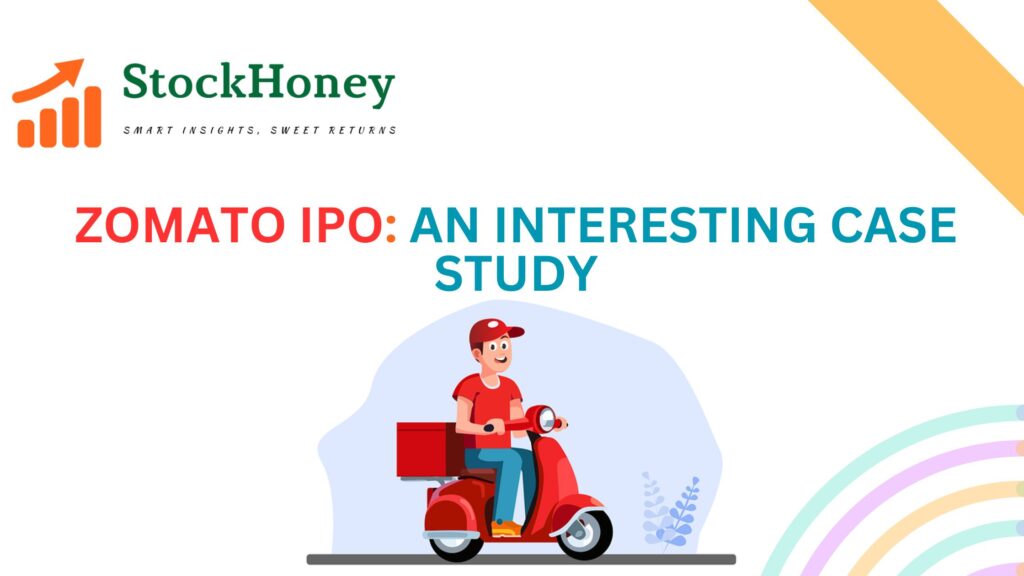As the IPO story in India goes, there have been a few transformative moments in the past, but one of the most impactful events in the IPO space in recent times would be the Zomato IPO. Zomato is India’s leading food delivery and restaurant aggregator platform. It hit the headlines with its spectacularly successful IPO in July 2021. In this article, we will look at the journey of Zomato from a startup to a publicly listed entity and the impact it created in the food delivery space and the larger startup ecosystem in India.
Journey of Zomato from a startup to a market leader
Zomato was founded by Deepinder Goyal and Pankaj Chaddah in 2008 as a restaurant discovery platform, enabling users to find menus, customer reviews, and ratings of restaurants online. Over time, the company expanded its offerings to deliver food, make table reservations, and even hyperlocal grocery delivery. By 2021, Zomato was a household name in India and one of India’s most successful unicorns.
The Zomato IPO was a watershed moment in India’s capital markets. The IPO was oversubscribed by more than 38 times. It reflected a strong interest by Indian investors. Through the IPO the company approximately raised Rs 9,375 crore (1.25 billion USD) and valued the company around 12 billion USD. It was the first time an Indian tech unicorn went public without being fully profitable. Investing in a company that is not yet profitable showed a trend among Indian investors where growth prospects in a company were preferred over immediate profitability. For many investors, Zomato represented a new exciting space in India’s digital economy – consumer tech space.
Market Effect: How Zomato’s IPO Revolutionized the Food Delivery Industry?
Increased Investor Confidence in Indian Startups
Zomato’s IPO marked a turning point for India’s startup ecosystem. Till then, Indian startups relied heavily on venture capital and private equity funding to grow. The listing of Zomato proved that high-growth, technology-driven companies can access public markets even if they are not immediately profitable.
The IPO created a ripple effect and opened doors for other Indian tech startups, like Paytm, Nykaa, and PolicyBazaar, to consider going public. For many investors, Zomato’s IPO opened new opportunities to invest in tech companies in the rapidly growing digital economy of the country.
Innovation in the Food Delivery Ecosystem
With fresh capital from the IPO at its disposal, Zomato was able to speed up expansion plans, invest in technology, and build improved services. Zomato invested in streamlining logistics, improving delivery speed and offering personalized experiences to the users. This mounted pressure on its biggest competitor, Swiggy, to ramp up its operations to hold on to market share.
After the IPO the competition between Zomato and Swiggy intensified, which eventually benefited the consumers in terms of improved speed and quality of services and better deals. The success of the IPO acted as a catalyst leading more restaurants to join digital food platforms and engage with online delivery services.
Impact on Restaurant and Cloud Kitchen Market
Zomato’s IPO validated the potential of cloud kitchens. These kitchens are set up exclusively for delivery services and do not offer dine-in. More funding and visibility helped Zomato support and partner with these cloud kitchen providers who were riding the wave of increased demand for food delivery during and in the post-COVID times.
For restaurants, the success of Zomato IPO highlighted how digital partnerships are vital in attracting new customers. It convinced many restaurants to divert some of their focus to the online order market providing an important supplementary revenue stream.
Regulatory and Policy Implications
Zomato’s success however caught the attention of the regulatory bodies focusing on issues like data privacy, the high commissions it charged from restaurants, and the impact of deep discounts on small businesses. The practices were investigated by the Competition Commission of India, which led to both Zomato and Swiggy being more transparent about their pricing and partnerships. It also ensured that there was greater fairness and transparency in the food delivery industry.
Redefining Valuation Metrics in the Indian Market
Traditionally, Indian investors have been very conservative in investing in companies that are loss-making. But the Zomato IPO changed this mindset. Investors started looking at market share and user growth along with the possibility of a disruption in that space to make their investment decisions. This approach has since then, defined the valuation of other tech startups. The investors have started focusing on growth indicators rather than just on short-term profitability.
Key Insights from Zomato’s IPO
Zomato IPO offers valuable insights for both startups and Investors.
- There has been a change in investor mindset. Growth indicators are more important than short-term profitability.
- The IPO of Zomato showed that user engagement and leadership in the marketplace are a huge asset.
- For growth, building trust with partners and users is crucial.
- Zomato was successful in creating a loyal user base and strong partnerships with restaurants by offering value and better services.
- Zomato invested heavily in the technology, ranging from AI-driven recommendations to logistic optimization, which further augmented its value and competitiveness.
- The company was also exposed to greater accountability, with regulators closely monitoring transparency and fairness.
Conclusion: Zomato’s Enduring Impact on Indian Tech and Food Delivery
Zomato’s impact has been twofold. Firstly, the IPO was not merely a big fundraising event, it marked an important milestone for India’s growing tech-driven economy. By going public Zomato not only transformed the food delivery industry but also set an example for other tech start-ups looking to follow the IPO path. Secondly, for Indian investors, it showed them that investing in tech-focused companies in India could offer potential strong returns in the future even though they are not immediately profitable. It gave a boost to investors’ confidence in India’s startup ecosystem and led them to see potential in other Indian startups.
Happy IPO Investing!
Related Information & Articles
Current & Upcoming IPOs in India
Don’t Miss – Tax Implications of Investing in IPOs in India
The Importance of Lock-In Period in an IPO
Should You Hold or Sell Shares After an IPO?


